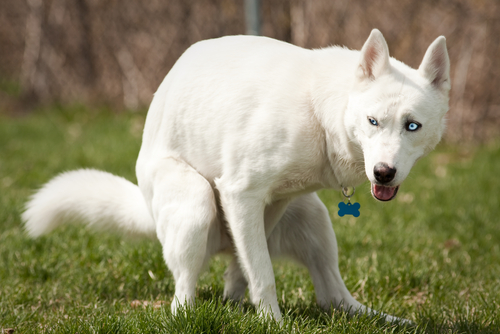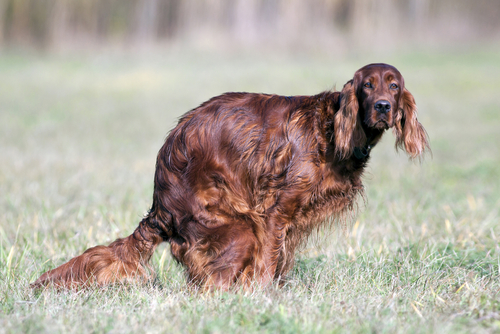Let’s face it, you can learn a lot from poop. It can be an outward manifestation of your dog’s overall health that you can easily check yourself. So take the time to get the “scoop on the poop” every day. What does the poop tell you?
Color
Poop is brown, right? Well, yes, but the actual color can depend on several factors. If there are dyes in the dog food, it can affect the color of the stool and still be fine, but some infectious agents that can alter the color of the stool. Some parasitic infections can make the stool look yellowish. The most important color change that dog owners should be aware of is black stool. A truly black and tarry stool can be a sign of stomach bleeding, (like from a bleeding gastric ulcer) which can be life threatening. If you notice black tarry stool, it is best to let your veterinarian know right away.

Consistency
We all know the consistency of normal stool and a dog’s feces should be similar to a human’s. It has shape and is firm, but compressible. Abnormal stool can vary from hard and dry to watery and liquid and every state in between. Excessively hard stool is abnormal, but so is a stool that cannot maintain a shape when passed. If you are not sure, collect a sample and take it to your veterinarian.
Frequency
Normal dogs that are eating regularly will have a bowel movement at least once daily and depending on the frequency of feeding, sometimes more. If your dog defecates more than twice a day though, really start being alert to the consistency and other parameters mentioned here. Many times frequent defecation goes hand-in-hand with diarrhea and should be brought to the attention of your veterinary healthcare team.

Odor
Poop smells bad and we all know it, but abnormal stool smells really bad! Everyone is fairly familiar with a normal dog poop smell (because we have all wiped it off of our shoes while muttering expletives…) If you notice a very foul odor associated with your dog’s feces, it could indicate maldigestion (not being able to appropriately utilize nutrients), inflammatory bowel disease or other things. Digestive disorders can cause a foul odor or excessive gas and your veterinarian can help. For your dog’s sake, don’t ignore foul smelling poop.
Not just the poop
If you notice anything in the feces that is not fecal material, it is worth noting. These things might include: Blood, mucous or foreign material. Dogs can eat things that pass in the stool without issue, but if it is coming out, you never know if there are parts that are not able to pass or if the object contained something that could harm your dog. Noticing anything that is not feces warrants a call to the vet. It might be inconsequential, but it is best to ask.
Your dog shares this important gauge to his health every day. Don’t let the warning signs go unnoticed.
Be a part of the FURenzy on Facebook by clicking here.
